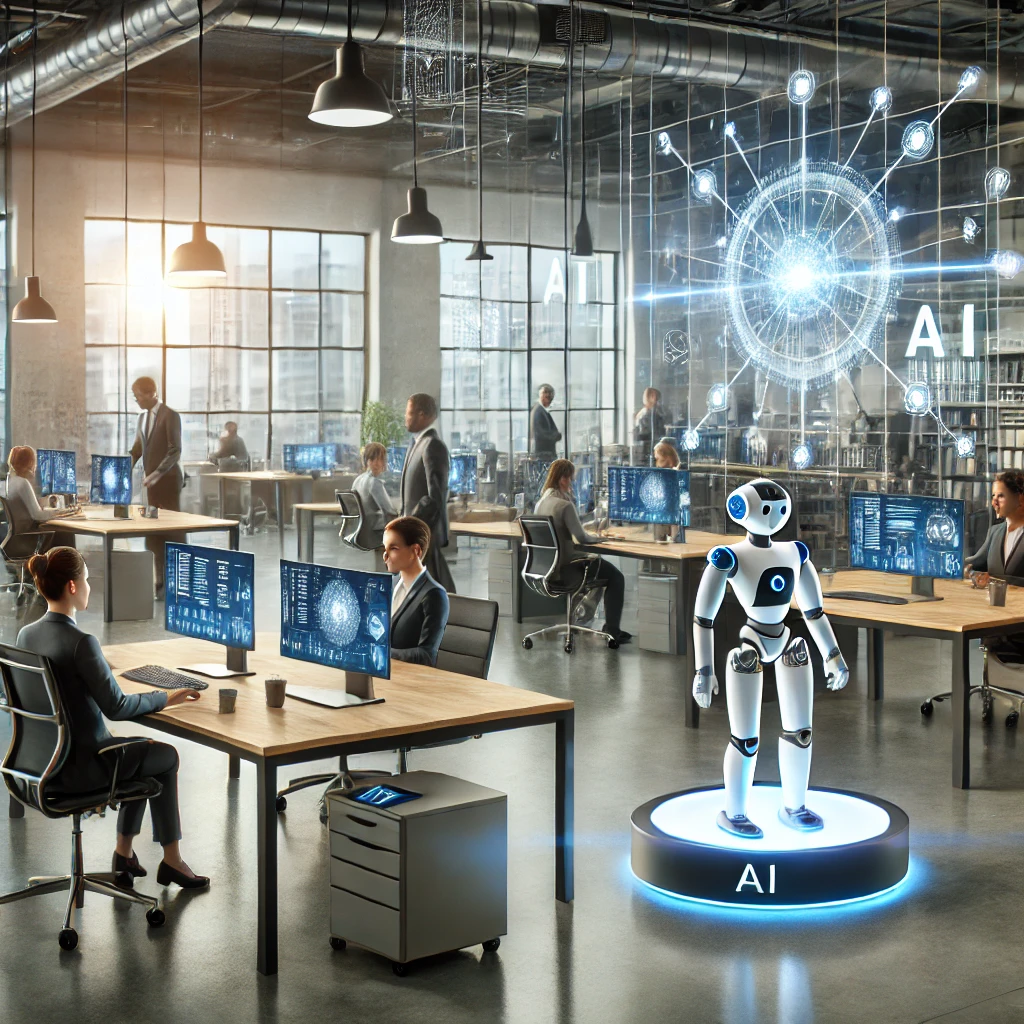59% of global workforce needs reskilling by 2030 as AI reshapes jobs
Employers are already taking proactive steps, with half planning to reorient their businesses around AI and two-thirds intending to hire talent with AI-specific skills. These efforts reflect a growing recognition of AI's transformative potential and the need to align strategies with evolving technological realities.

Artificial Intelligence (AI) has emerged as a transformative force reshaping industries, jobs, and skills. According to the World Economic Forum’s Future of Jobs Report 2025, AI and information processing technologies are expected to drive significant business transformations, influencing job creation, displacement, and the evolution of workforce skills. This article delves into the insights provided by the report, exploring how AI is redefining the global labor market, its potential benefits, and the challenges ahead.
The report identifies AI as the most transformative technological trend, with 86% of surveyed employers expecting it to revolutionize their businesses by 2030. Generative AI (GenAI) has gained rapid traction since the release of models like ChatGPT in 2022. These advancements enable organizations to automate routine tasks, enhance decision-making, and streamline operations. Notably, sectors such as information technology are leading in AI adoption, while industries like construction lag behind.
Generative AI's impact is multifaceted. It has reduced barriers to adoption by enabling human-like interactions, making it accessible even to those without technical expertise. Furthermore, AI-powered tools are expanding the capabilities of employees, allowing less specialized workers to perform complex tasks efficiently. This democratization of expertise highlights AI's potential to enhance productivity and innovation across diverse fields.
The report projects that AI and related technologies will create 11 million jobs globally by 2030. Roles such as AI and machine learning specialists, big data analysts, and software developers are among the fastest-growing. Simultaneously, AI is expected to displace 9 million jobs, primarily in clerical and routine roles like data entry clerks and administrative assistants.
This dual impact underscores the importance of preparing for workforce transitions. Employers anticipate a 22% structural churn in the labor market by 2030, with 170 million jobs created and 92 million displaced. Ensuring that displaced workers are reskilled and redeployed into emerging roles will be critical to managing this transformation.
Building skills and bridging gaps
AI adoption is transforming the global workforce, driving demand for both technical and human-centered skills. Technology-related competencies, such as AI, big data, cybersecurity, networks, and technological literacy, top the list of fastest-growing skills. These are complemented by equally critical human abilities like resilience, creative thinking, and adaptability, which are essential for navigating the complexities of a rapidly changing job landscape.
The Future of Jobs Report 2025 highlights that by 2030, 59% of the global workforce will require reskilling or upskilling. Employers are responding to this challenge with 85% prioritizing workforce training initiatives aimed at bridging skill gaps. Lifelong learning and adaptability have become central to equipping workers with the tools to thrive in an AI-driven world. However, uneven access to AI technologies poses significant challenges, with high-income countries leading in adoption while low-income nations struggle due to limited infrastructure and resources.
As automation reshapes industries, concerns about job displacement and the equitable distribution of AI’s economic benefits have grown. The report emphasizes the importance of responsible AI deployment, advocating for frameworks that prioritize human augmentation over replacement. By enhancing human capabilities rather than substituting them, organizations can ensure that the benefits of AI are shared equitably across societies, addressing global inequalities while unlocking its full transformative potential
The road ahead: AI and workforce transformation
The integration of AI into the global workforce is a dynamic process requiring collaboration among stakeholders. Governments, businesses, and educational institutions must work together to address the challenges and opportunities presented by AI. Policies that support inclusive access to AI technologies, investments in digital infrastructure, and robust reskilling initiatives will be key to navigating this transition.
Employers are already taking proactive steps, with half planning to reorient their businesses around AI and two-thirds intending to hire talent with AI-specific skills. These efforts reflect a growing recognition of AI's transformative potential and the need to align strategies with evolving technological realities.
Overall, the insights from the World Economic Forum’s Future of Jobs Report 2025 highlight AI’s transformative role in shaping the future of work. As the global labor market adapts to this technological revolution, the focus must remain on fostering an equitable and inclusive transition. By investing in skills development, promoting responsible AI deployment, and ensuring access to technology, stakeholders can harness AI's potential to drive innovation, productivity, and societal progress.
- FIRST PUBLISHED IN:
- Devdiscourse










